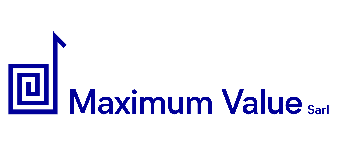Social insurance
What will the burden of social insurance be in your business expenses? How to anticipate and integrate it to the budget? Maximum Value gives you its best advice, based on years of experience working with companies.
Recruitment
With Maximum Value, you benefit from out methodological approach when recruiting employees:
- Analysis of your needs
- Definition and implementation of research resources
- Preselection
- Selection
- Presentation of candidates
- Integration follow up during trial period
Remuneration
How to offer your employees an attractive remuneration package, while respecting your business performance? How to link remuneration to performance?
Loyalty
Any business dreams of retaining its best employees. How can you reward their work and show them your appreciation? Maximum Value shows you how.
Labour law
Labour law refers to the set of legal rules which governs relations between an employer and an employee, defining their rights and obligations. Due to its complexity, Swiss labour law has never been fully summarized. It is spread out in several texts and always evolving. Thus, the basis of Swiss labour law is found in the Code of Obligations (CO) and in the Federal Labor Act.
Labour law is made up by the all the legal texts which define the rights and obligations of both employees and employers. It is divided between several texts:
- The Code of Obligations
- The Federal Labor Act, with orders
- Federal laws on labour, with orders
- Collective Labour Agreements
- Standard Employment Contracts.
Work permits
Obtaining a work permit in Switzerland depends on many factors and is subject to certain limitations.
For foreigners wanting to work in its territory, Switzerland applies a dual system.
European Union and European Free Trade Association nationals are, in principle of free of movement. Even if they do not have a contract, they are allowed stay in Switzerland for 3 months (6 months in some cases) to find a place to work.
For other countries are subject to more restrictive conditions. To settle in Switzerland, they must first obtain a work contract and a permit. A contract gives no guarantee that a work permit will be granted. Cantons are responsible for granting of a work permit.
Border residents
Border residents working in Switzerland are subject Swiss labour law (unless otherwise agreed). Swiss labour law is much more flexible and liberal than other legislations.
Employment contract
It may be oral or written. However, you must be informed in writing by your employer of the names of the parties, contract starting date, occupation, salary and the average working time.
Probation
Unless otherwise agreed in writing, the trial period is one month. Each party may terminate the contract in accordance with a notice period of 7 days.
Working time
In Switzerland, the maximum number of working hours are between 45 and 50 hours a week. However, due to some collective labor agreements, the average duration of work is 42 hours per week.
Minimum wage
Following the recent referendum, Switzerland still does not have a minimum wage. However, some minimum wages are set by collective agreements or are subjective to the type of employment contract you may have.
Paid leave
In Switzerland, every employee is entitled to at least four weeks of vacation per year. An additional week of vacation is given to young people up to 20 years of age. It can also be granted to you, depending on your contract or your industry’s type of collective agreement.
Termination of employment contract
For fixed-term contracts, the end date is the one agreed, without having to give notice.
For permanent contracts, once the trial period is over, either party may terminate the employment contract with a period of leave.

